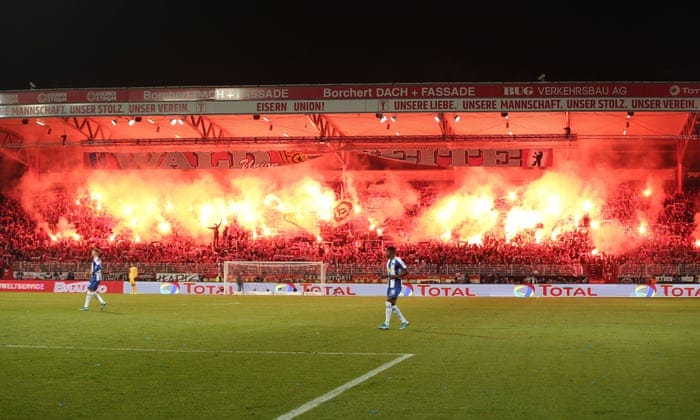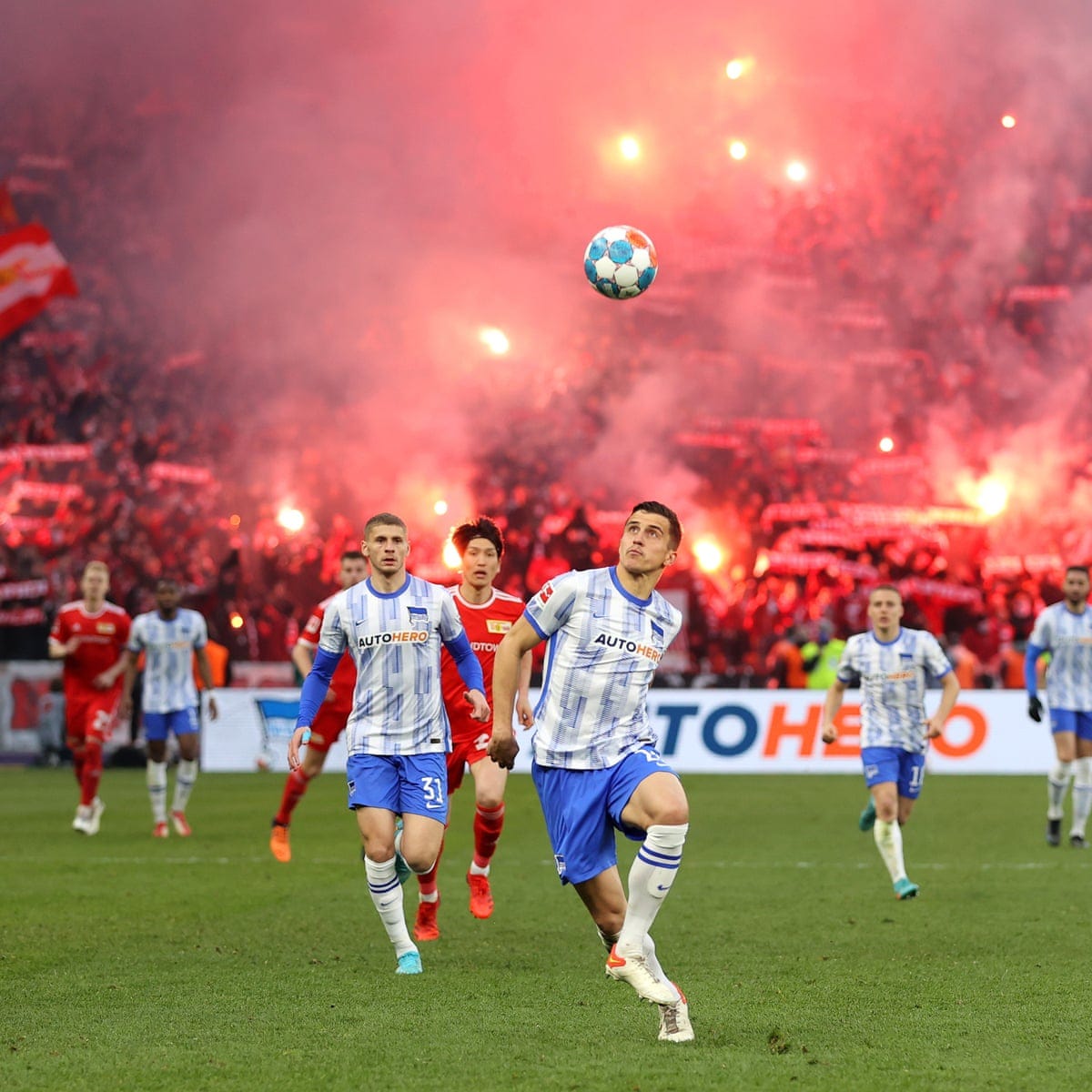The Berlin Divide
Two teams. One city. A turnabout in expectations.
Berlin is perhaps Germany’s greatest attraction. The capital is cosmopolitan and international, and its long history and diverse present are always on display. But while Germany's capital is many different things to so many different people, for football fans it’s never been a city that belongs amongst Europe's football elite.
Two teams, one in the East, one in the West. One run by a multi-billionaire and a private investment firm in the US, the other run by its supporters. The rivalry between Hertha Berlin and Union Berlin mirrors remarkably the divide that Berlin faced throughout the late 20th century.
In recent years, driven by a younger generation of fans bringing their own passion for the game and creativity, Berlin's football culture in the top flight looked set for a new era. Hertha Berlin was supposed to spearhead the process. German billionaire Lars Windhorst had taken over with the promise of making it a so-called “Big City Club”. Hertha seemed to have everything they need. Money, a giant stadium (even if it is in need of some serious TLC), a great history to look back on and be proud of. Instead, it is the team from the East - who have embraced some of the fundamental beliefs of the Union that once held power over their area - that have led the way.
Union Berlin is dreaming of Champions League football next season while Hertha Berlin faces the nightmare of relegation. The fortunes of the German capital’s Bundesliga clubs could hardly be more pronounced this season.
Union, who were only promoted to the Bundesliga in 2019, just needs to win one of its remaining two games to be guaranteed qualification for the top competition in Europe. It’s a truly astounding achievement for a team that was expected to be fighting for survival at the beginning of this season.
Instead, it’s city rival Hertha that looks set to drop down to the 2. Bundesliga. Hertha, who were one of the original members when the Bundesliga was formed in 1963, is last with two games remaining. Their demotion will be confirmed if it doesn’t beat relegation rival Bochum at home on Saturday at 14:30 GMT.
It’s arguably the lowest point in Hertha’s history since its formation in 1892 – a rude awakening from the heady days of 2019 when investor Lars Windhorst declared it a “big city club” and announced his ambition of turning Hertha into one of Europe’s best.
(I chose them for my main FIFA career mode last season and won the Bundesliga with them in my 3rd season, maybe they should have picked me to run the club instead)
Windhorst invested 374 million euros ($406 million) altogether, but the money disappeared while the team’s poor performances were overshadowed by a string of off-field scandals.
Cost-cutting became Hertha’s priority when Windhorst’s money ran out. A team that fought relegation every season since 2019 was progressively weakened for the next. Hertha only survived through a playoff last year. Then it got rid of more players. Relegation is the logical outcome.
And it could yet get worse. Windhorst sold his stake to American backers 777 Partners earlier this year, but Hertha’s finances remain in such poor shape that its license from the German soccer league (DFL) for next season is under threat.
“If we can’t prove economic viability, we won’t get a license,” Hertha managing director Thomas E. Herrich told members at the club’s general meeting last Sunday.
777 has already committed to providing 100 million euros ($108.5 million) but Herrich said more is needed to show the DFL that the club is fully financed for next season.
“The situation is difficult and challenging,” Herrich said. “We’ve lived beyond our means and always spent more than we earned in recent years. We have to increase revenue, but above all we have to radically reduce costs.”
Herrich said Hertha, which is looking at a potential loss of 65 million euros ($70.5 million) this season, wants to reduce squad costs by 30% and “be still suitable for the Bundesliga, or, if it comes to that, the second division. That’s a Herculean task.”
Meanwhile, Union can look forward to a huge jump in revenue from Champions League participation – if the committed team of hard-working players can win at Hoffenheim or at home to Werder Bremen in its final two games.
“We’re playing in the group stage of the Europa League at a minimum. It’s a crazy success and I’m delighted,” coach Urs Fischer said after Saturday’s 4-2 win over chief rival Freiburg.
It was Union’s record-extending 22nd league game at home without defeat and the team now has two more points than it managed in its previous best season (57) last year. The home fans sang about the Champions League as the players celebrated.
“They can keep dreaming, it’s good that way,” Fischer said of a potential top-four finish for Europe’s premier competition. “It’s within reach but we have to take the step, we have to grab it. There are still two very difficult games. And the Bundesliga is crazy in the last matches.”
Pay close attention to this Saturday’s 14:30 GMT kick-offs. They’re sure to provide some entertainment, no matter what side of the city you might be rooting for.



